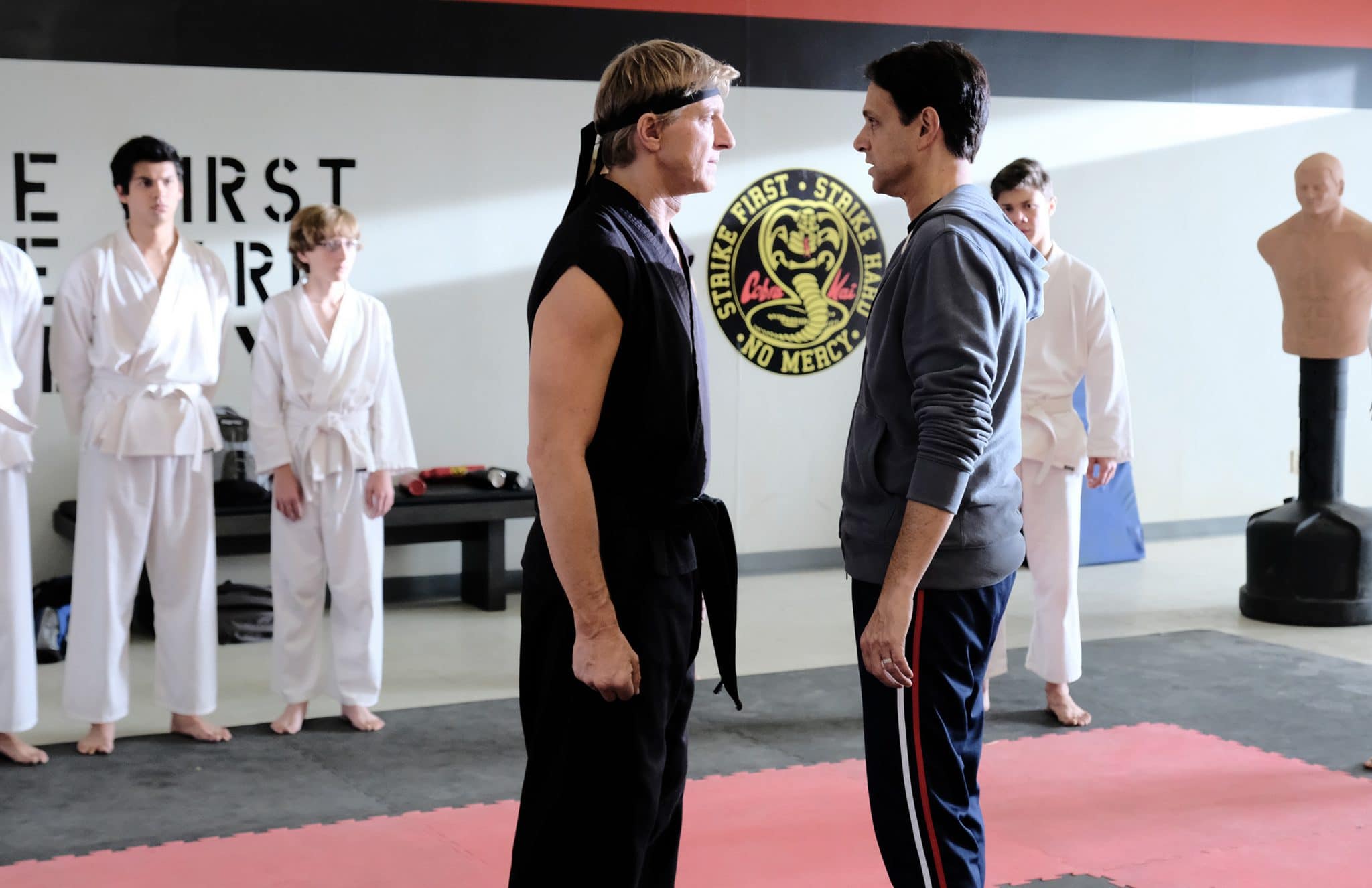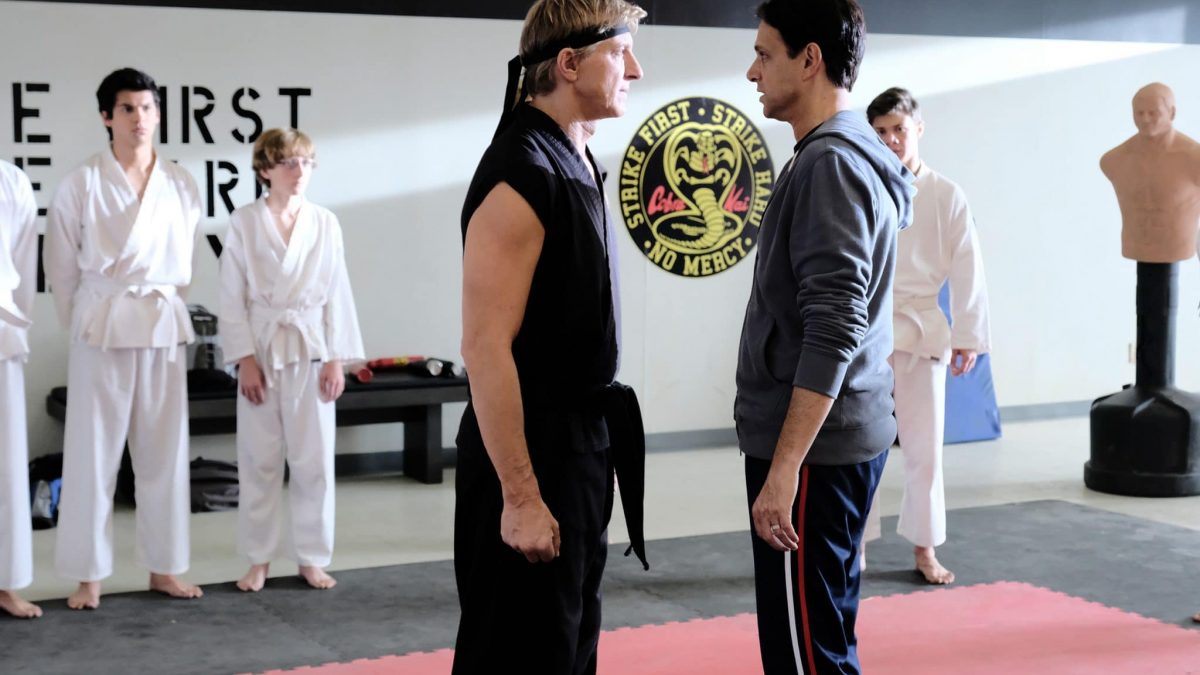
Conduct Recognizance
If you hope to work as a professional, it’s essential to know what’s happening in your industry at any given moment. If a prospective agent starts talking about Cobra Kai, it won’t look particularly good if all you can do is respond with an anecdote about your college roommate’s pet snake.
It’s important to know what’s getting the most attention at any given moment. Aspiring TV writers should periodically go to Nielsen’s website to see which shows are getting the highest ratings. Deadline, Variety, and The Hollywood Reporter are the entertainment industry’s main trade publications. Visit their websites regularly and consider investing in a subscription to at least one of them.
Obviously, you can’t watch everything. But you should watch those projects that closely line up with your own interests. Industries require specialists and entertainment is no exception.
In Save the Cat! Strikes Back, Blake Snyder notes that selecting a specialty was critical to his initial success. He thought of himself not just as a screenwriter but rather a specialist in family comedies.
Trevor loves crime dramas and has shown an ability to write them. Accordingly, those are the films and series he needs to watch—not just for entertainment, but for the sake of his professional development.
Gather Intelligence
From the moment they first pitch an idea through the days a project is being filmed, professionals get notes about their work from their collaborators. Within your network you’ll find writers willing to read and critique your work, and of course, you should offer to return the favor.
Getting the most out of this process is an essential skill, one that starts by not taking things personally. Learn the difference between a critique (“a detailed analysis and assessment of something”) and criticism (“the expression of disapproval of someone or something based on perceived faults or mistakes”).
I’ve been amazed by some of the feedback I’ve gotten over the years. What I was sure was some of my best work fell flat. Other things I was ready to jettison got a surprisingly positive response. After spending countless hours on a project, I was convinced there was nothing I could do to improve it… but aided by another writer’s perspective, I was able to elevate it to an entirely different level.
Mount Your Campaign
Once you’ve written your material and polished it to a high gloss using the feedback you’ve gotten, you’re ready to take specific steps that will get you closer to your goal.
Start by investigating writing fellowships. A Google search will generate page after page of results. Fellowship programs help writers develop material while providing them with financial assistance. Some programs require completed screenplays, spec scripts, or pilots. For others, a treatment or basic summary of an idea may suffice. Additionally, you’ll be asked to provide a biographical essay or personal statement that includes information about your professional aspirations.
The application process is generally the same for mentorship programs. These connect aspiring writers with established professionals who provide tailored feedback, including critical input about your work and suggested actions that will help you move your career forward. Mentors share their real-world experience and match it to the specific challenges you’re likely to meet along the way.
While it’s free to apply for some fellowships and mentoring programs, others require application fees or the purchase of other goods and services. Be sure to do your homework before you invest your time and money in the application process. In addition to your own internet sleuthing, check in with your network to see if they can provide feedback about the quality and reputation of each program.
Also see if your fellow writers have any leads about which industry professionals are receptive to query emails. Not all agents, managers, and producers read them, but some do. Readers of Save the Cat! Strikes Back will recall that Master Cat Ben Frahm mailed more than 100 queries to names listed in The Hollywood Directory. And while only a handful responded, the effort got him that much closer to where he is today: a successful working writer whose IMDb page grows year after year.
And speaking of IMDb: If you pay for an IMDbPro membership, you’ll have access to the email addresses of many agents, managers, and production companies.
Sending applications and queries are not the only action steps available for your campaign. New ones will constantly appear. (An example: a friend volunteered to be a production assistant on a small independent film. He grew his professional network and learned a tremendous amount about writing dialogue watching the actors improvise.)
Finally: Never Forget the “Happy” Part
I sincerely believe that a positive attitude is an essential ingredient to a formula for success. I’m not suggesting you adopt an unrealistic view of the challenge you face. As I said, there are no guarantees and you’ll inevitably face plenty of indifference and rejection along the way. You’ll have to work extremely hard, but you don’t get extra points for being miserable while you do it.
Keep some things in mind as you move forward. First, the writers you most admire were once exactly where you are right now. Then, periodically remind yourself why you’ve chosen to do this. Maybe it’s a film that changed your life. Or maybe it’s just a single line of dialogue that moved you deeply. Consider posting that line above your workspace.
Use that inspiration to cultivate a positive mindset. Not only will it help you stay well-adjusted, but a positive attitude tends to shine through in all the actions you take—whether in a query letter or a casual conversation with another writer. And people like to work with collaborators who have a good attitude.
It was Louis Pasteur who said, “Fortune favors the prepared mind.” I think fortune favors the prepared heart, too. So as you feed your mind new ideas about how to improve as a writer, take some time to nurture your spirit.
With that in mind, let’s toast to your professional success. Make mine a glass of milk—pasteurized, of course.
Read Part 1 of The Happy Warrior’s Guide to Starting Your Writing Career









